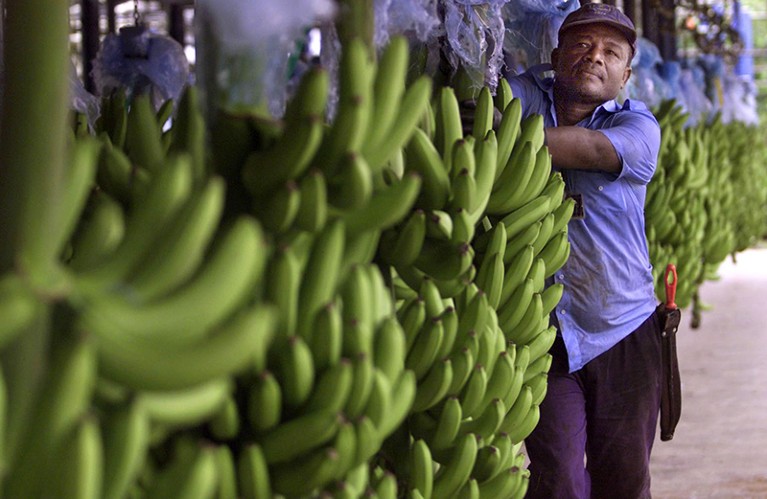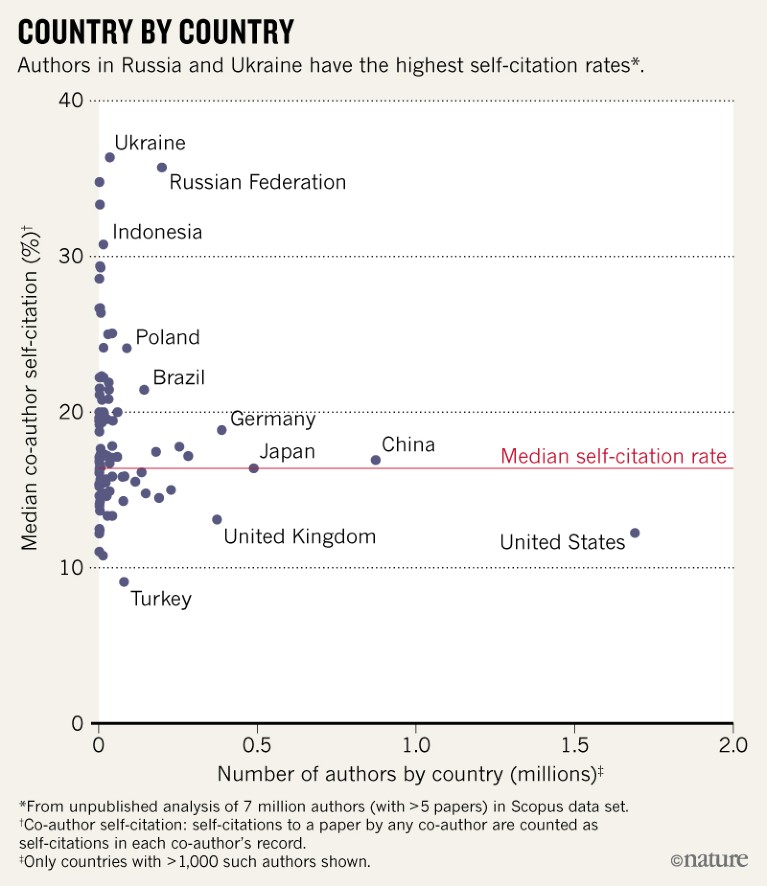Hello Nature readers, would you like to get this Briefing in your inbox free every day? Sign up here.

Bananas are one of Colombia’s most important exports.Credit: Luis Acosta/AFP/Getty
Devastating banana fungus reaches Americas
A banana-killing fungus that has been laying waste to crops in Asia and Australia for decades has been confirmed for the first time in the Americas, the world’s banana-growing heartland. Colombia declared a national emergency on 8 August after confirming the presence of the fungus, known as Fusarium wilt tropical race 4 (TR4). Scientists now fear that TR4 has spread beyond a quarantine zone in the north of the country and could threaten banana production in the Americas for decades to come.
Do C-section babies need mum’s microbes?
Researchers are sharply split on whether babies born by caesarean section (C-section) are at higher risk of chronic health problems such as obesity and asthma because they aren’t exposed to the microbes in their mother’s birth canal. A wave of clinical trials now under way could help to settle the question — and feed into the debate over whether swabbing C-section babies with their mother’s vaginal bacteria is beneficial or potentially harmful.
Brazil’s budget cuts threaten scholarships
Brazil’s main science-funding agency will have to suspend more than 80,000 science scholarships to postdocs and students starting in September unless it receives additional cash from the government. “Government is jeopardizing the future of a whole generation of Brazilian scientists,” says physicist Paulo Artaxo.
Climate warnings could break Canadian law
The Canadian election watchdog has warned some environmental groups that raising the alarm over the climate emergency might break election laws — because one party leader doesn’t believe in climate change. An official warned charities that their advertising could be seen as engaging in partisan debate with climate-science denials made by Maxime Bernier, the leader of the People’s Party of Canada, even if they don’t mention him or his party by name.
The Globe and Mail | 5 min read
FEATURES & OPINION
The world’s most extreme self-citers
Some of the world’s most-cited researchers get the lion’s share of their citations from their own papers, or from those of their co-authors. A study of 100,000 researchers shows that at least 250 scientists have amassed more than half of their citations this way (far above the median self-citation rate of 12.7%). Nature explores how much is too much self-citation — and what, if anything, should be done about it.

Source: Jeroen Baas, unpublished analysis of Scopus database.
How to spot false claims
How do we work out which claims to trust? An alliance of 25 researchers from 14 different disciplines outlines the key concepts for making informed choices — and it’s not about flooding people with more information. The group has also launched a handy website that offers a user-friendly framework for judging interventions in everything from children’s health to business management.
How to be a successful remote postdoc
The proliferation of computational research has opened the door to remote working for postdoctoral scientists, note eight researchers who have put together a guide to making the arrangement work. Their “ten simple rules for a successful remote postdoc” include the potential pitfalls to plan for and the technology that can help.
What stands between women and tenure
In a carefully referenced article, environmental historian Troy Vettese explores what is punching holes in the ‘leaky pipeline’ for female academics. “The problems of misogynist PIs and tepid reference letters may stem from the same root: the widespread assumption that only men can be brilliant,” argues Vettese. For solutions, he writes, look to policy changes by groups such as the US National Institutes of Health that aim to shift the focus to the quality of the research, rather than judging the researcher.
